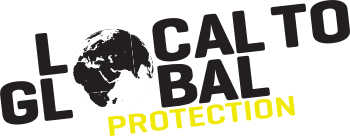Internationals did nothing to protect us during the war. They promised things to us but did nothing – we could only depend on ourselves
Publications
Drawing on our research into how people respond to crisis and humanitarian funding flows, as well as our experience implementing sclr, L2GP contributes to a number of debates in the aid sector aiming to ensure that citizen and community priorities, perspectives and agency are heard and taken into account.
HPN 84: Survivor and Community-led crisis response: practical experience and learning
Justin Corbett, Nils Carstensen and Simone DiVicenz, May 2021
Findings from our Humanitarian Economy project to examine humanitarian funding flows since the Grand Bargain and ask what meaningful change has been made towards transfer of resources in the five years since the commitments began.
Humanitarian Exchange 79: Local funding flows and leadership: recent trends in 10 major humanitarian responses
Christian Els and Henrik Fröjmark, May 2021
A distillation of ten years’ experience of sclr in natural disasters, armed conflict, persistent poverty and social unrest. By presenting evidence from crisis contexts around the world the paper demonstrates the necessity of letting local people and communities take control of the response and shows how it can done in practice. The paper is a call to action for implementation of truly locally-led responses across the aid sector.
Humanitarian Exchange 79: Learning from survivor- and community-led response in Haiti
Charlotte Greene, Chris Ball, Foster Javin, Frontceay Panier, Jonides Villarson, Naomie Beaujour, Nathalie Töpperwien Blom, Simone Di Vincenz, May 2021
Lessons from pilots supporting community-led resonse to crisis through Linking Preparedness Response and Reslience (LPRR), with support from L2GP, Christian Aid and others
HPN 72: Local to Global Protection in Myanmar, Sudan, South Sudan and Zimbabwe
shley South and Simon Harrigin, with Justin Corbett, Richard Horsey, Susanne Kempel, Henrik Fröjmark and Nils Carstensen, February 2012
This special publication from the Humanitarian Practice Network presents our early research into community response to crisis, drawing together the key learnings that later helped build the sclr approach to resource individuals and communities to respond to crisis. It has been instrumental in inspiring a significant number of humanitarian protection actors to include community perspectives into their protection work.
